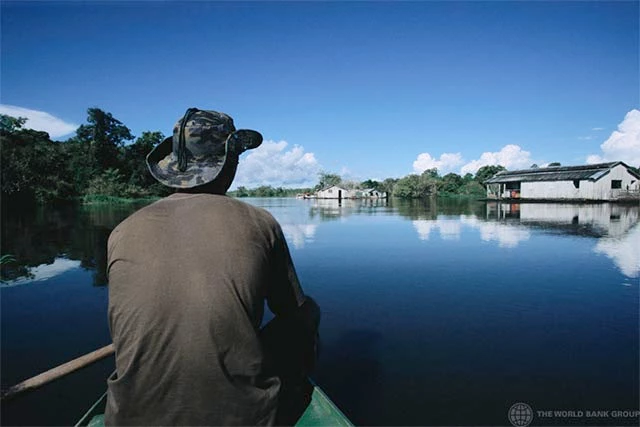
When the word “Amazonas” is mentioned, what do you think of? Mythical rainforests and winding rivers? The “lungs of the world”? A center of procurement excellence in the Brazilian federation?
That last point may surprise you, but our recent work with officials from the State of Amazonas in Brazil has proven it to be true. Amazonas has found innovative ways to leverage big data to increase the transparency , efficiency, and value of transactions, and has engaged everyday citizens in the process.
Like other governments with a decentralized structure, the State of Amazonas is responsible for buying the goods it needs to function and serve its population. But as you can imagine, this State can be a challenging place to do that: 98% of the territory is rainforest accessed by river or air, and with a population of 3.8 million, the State represents only 1.5% of the Brazilian economy. With the scales thus tipped, procurement in Amazonas can also be expensive.
As a 2013 study demonstrated, the State was paying 27% more than the private sector to buy the same things (from desks and chairs, to medical supplies), often resulting in the procurement of lower quality goods. The case was even worse for municipalities within the State, which were paying a 49% premium.
This pricey procurement can be attributed to different factors, involving a vicious cycle of slow processes and high transaction costs, wasted efforts on failed bidding processes, and frustrated government officials and suppliers, all leading ultimately to less value for money for citizens. So how did they start to break the cycle?
The answer lies in the application of three core principles:
- Forming a strategy and policy team committed to reform;
- Harnessing technology for more efficient processes and data collection; and
- Targeting interventions enabling line agencies to focus more on their core businesses.
With a high-powered team and strategy in place, the State of Amazonas collected treasure troves of data, analyzed to solve bottlenecks and improve performance. For example, building on innovations from São Paulo and Rio, Amazonas encourages citizens to request receipts when they buy goods. By adding a unique bar code to each receipt, consumers can swipe with their phones to instantly win prizes and cash. As a result, Amazonas can ensure that vendors pay taxes on those goods, while also gaining valuable information on market prices, used to ensure the State is getting the best deals for similar items. Scaling-up the use of e-procurement, Amazonas also collected data on its own processes to rectify the most timely and costly bottlenecks.
The data collected was made available to the State capital, Manaus, and to the public through an online platform, complete with monitoring dashboards tracking the progress of government units to reach goals for procurement performance improvement.
Globally, the Amazonas story reflects the tremendous advancements in public procurement over the last decade, from e-procurement and digital signatures to e-invoicing. These innovations have enabled the collection of massive amounts of valuable information. But the Amazonas experience demonstrates that the key to true advancement lies in the ability to make sense of that data, and to leverage it to target reforms.
For example, we know that competitive bidding yields better prices, but the number of bidders also matters. Drawing on lessons from the State of Bahia, we found that 6 or more bidders were needed to really make a difference in prices. We learned that despite having the same rules and procedures in place, procurement was taking longer in certain sectors than others, and that process burdens were incentivizing a disproportionate number of small purchases. Resulting strategies, like simplifying high-volume, low-risk procurement, and establishing framework agreements with suppliers in key areas for greater economies of scale, resulted in a savings of roughly R$ 28 million.
Through an ongoing impact evaluation in Amazonas and the Manaus municipality, we’ve also identified key barriers which lead suppliers to opt out of competition or raise prices for the government, from the short time allowed for time-consuming bid preparation, to costly and delayed contracting. The hypothesis is that scaling technological advances (particularly eDocuments and eAuctions) reduces processing time and costs, ultimately enabling the procurement of higher quality goods. Most importantly, supporting these kind of reforms can allow line agencies to focus less on procurement and more on achieving their objectives, for improving performance and delivering services to citizens.
Tweet these:
Making Procurement Smarter: Lessons from the Amazon
Amazonas story shows public procurement advancements, from e-procurement to e-invoicing.
In the State of Bahia, competitive bidding as well as the number of bidders yield better prices.




Join the Conversation